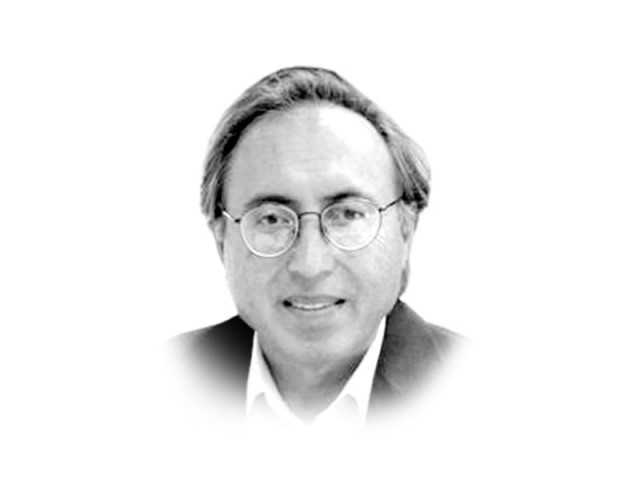Sorting out Karachi’s troubles
One must not allow any group to run Karachi as an exclusive domain or allow it to be carved into mini ethnic-states.

Sorting out Karachi’s troubles
First of all, we need to ask ourselves who has failed in the primary responsibility of protecting the lives of citizens, who often happen to be the poor? Institutionally, one is forced to point fingers at the government of Sindh. In doing so, one will have to assume that it is autonomous in making decisions. However, we would be kidding ourselves if we believed this was actually the case. Being part of the larger national political network of the PPP, the Sindh government has hardly any authority even to shift ordinary bureaucrats from one office to another. Most of the decisions about law and order, allocation of resources, rewards, positions and bargaining with allied political parties are taken by the kitchen cabinet of President Asif Ali Zardari. The Sindh members of the power structure are consulted, but this consultation is more like one-sided counselling rather than listening and caring for dissenting voices. In the final analysis, what happens or doesn’t happen in Karachi must find its route to the presidency.
President Zardari is now a seasoned political player and has proved far more shrewd than his arch-rivals in the PML-N. His key to success so far is flexibility, accommodation and the opening up of the floodgates of patronage on state expense to win support and to maintain it. This is the reason our farcical parliamentary democracy is reduced to numbers. President as a hard core practical person knows what the asking price is and seems to be very generous in striking deals in a society where the elected ones have no compunction about switching sides. The flip side of this politics is that politics remains embedded in crude and often violent ways of acquiring power.
This is a style of politics that kills democracy, undermines faith in it as an ideal and generates scorn for the political class — our noble electoral elite. Karachi is bleeding precisely because of the same kind of politics. Here, too, the political pattern is the same, only the colours are different. For well over three decades, the politics of Karachi has taken deep ethnic hues. Party labels camouflage the inner character of politics in the megacity. Perhaps this is a patch in our political development but then one must manage it as per the law and not allow any group to run Karachi as an exclusive domain or allow it to be carved out into mini-states along local ethnic lines. That will be against the nature of things, since the city is multi-ethnic and will remain so, requiring overlapping bonds of citizenship and political community.
There should be no doubt that the political and ethnic fragmentation of Karachi is one of the troublesome legacies of the two martial rules of our past. Diffusing the negativity of ethnic prejudice must be the first step and only then can we move on to reshaping the democratic process to make it normal and inclusive. There are four ways to normalise Karachi.
The first is that all parties must reject instrumental violence. This is the same weapon that terrorist groups use in other parts of the country. The second is that power must be shared among major political parties — to form a sort of inter-ethnic governance. Third, impartial elections should be held so that the mandate is genuine and not manipulated. Finally, freeing the police, bureaucracy and judiciary from political interference can bring about the desired change. These ideas are not alien to those who have bled Karachi or have sat on the sidelines with benign neglect. Karachi is too important for the country to be left as a hostage to the violence of narrow-agenda political groups.
Published in The Express Tribune, August 28th, 2011.














COMMENTS
Comments are moderated and generally will be posted if they are on-topic and not abusive.
For more information, please see our Comments FAQ